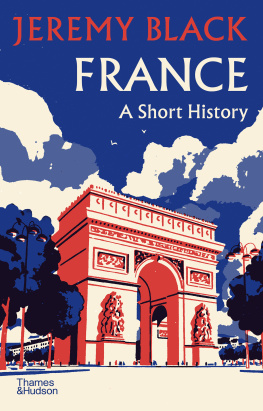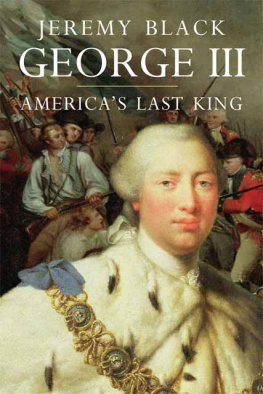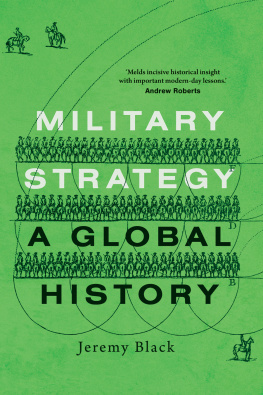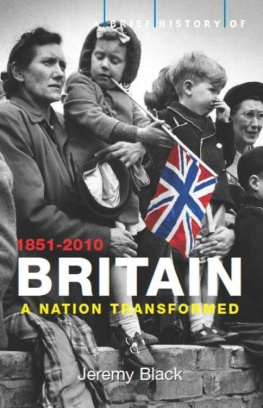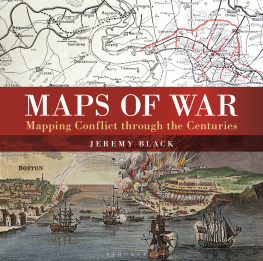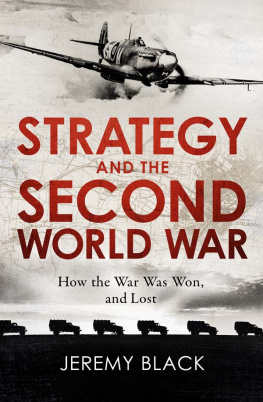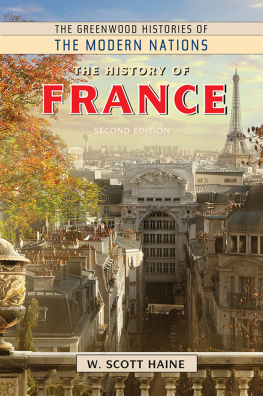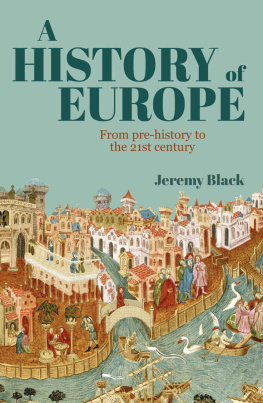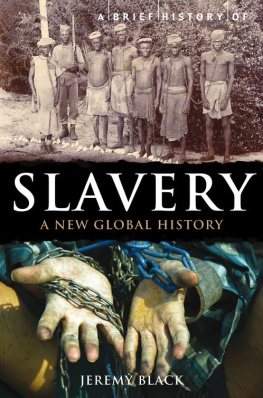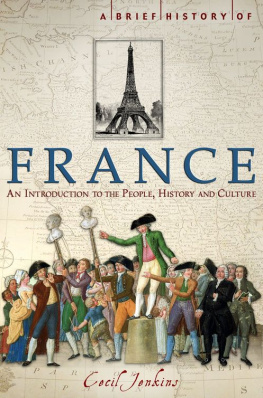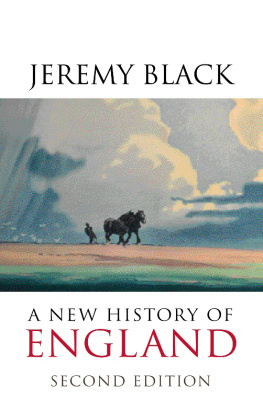

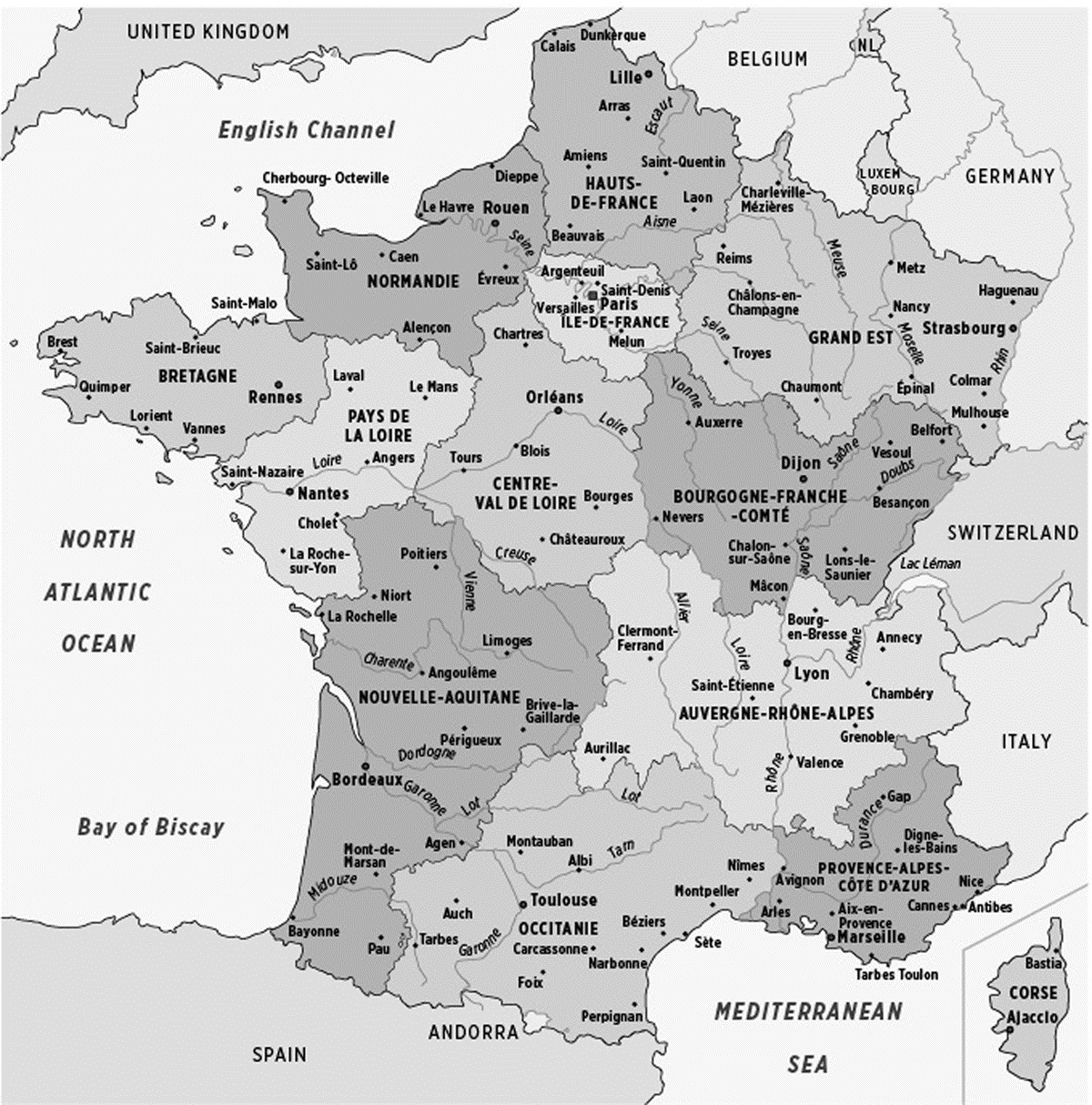

About the Author
Jeremy Black is one of the UKs most respected and prolific historians. He is a Senior Fellow at Policy Exchange and Emeritus Professor of History at Exeter University and a renowned expert on the history of war. His most recent books include A Brief History of Italy (2018) and A Brief History of Spain (2019).
Other titles of interest published by
Thames & Hudson include:
Turkey: A Short History
Norman Stone
India: A Short History
Andrew Robinson
Scotland: A Concise History
Fitzroy Maclean
Be the first to know about our new releases, exclusive content and author events by visiting
www.thamesandhudson.com
www.thamesandhudsonusa.com
www.thamesandhudson.com.au
TABLE OF CONTENTS
a world of princes, and dukes and ladies of the court; I counted above 300 coaches with 6 and 8 horseswe met the king in a very large coach and 8 horses; there was with him the Duke and Duchess of Burgundy and three other ladies. Twenty miles together all the roads were filled with vast trains of equipages.
Meeting Louis XIV in 1699 when the royal household was moving into winter quarters at Versailles, Richard Creed was impressed by the scale of the magnificence. A starker reality was observed by Robert Clives party of tourists, who outside Toulouse in 1768, saw the shocking spectacle of 23 bodies of criminals which were still fresh and exposed by the road-side. Many of them were hanging on a gallows between four pillars, and the rest exposed upon a wheel as they were executed. It has always been possible for the visitor to be faced, at any two points in time, with very different versions of France. Country and destination, nation and idea, France has a rich and complex history. I have set out to show the pattern of this history, focusing on key events and with reference to major sites, and of the development of the character of France.
Different accounts of Frances past contribute both to the perception of the country and the extent to which that perception is a continuing cause of controversy. For long, it was possible to present an account of this history as an essentially unitary one, from which there were marginal diversions, notably Vichy, when the idea of France was more fragmented. That account, however, looks far less certain from the perspective of today, and for several related reasons. First, there is less of a clear sense of what France means today given the range of politics on offer. Secondly, this range includes very different readings of French history. Thirdly, those different readings relate to a situation that has been in play for a very long time, indeed many centuries: France has a long history, and the French long memories. In Paris in 1989, to speak at a conference for the bicentenary of the Revolution, I found many lampposts covered with stickers proclaiming Vende Genocide, a reference to the Revolutionary armys brutal suppression of Royalist opposition in the Vende in 179394. And now, such views are more to the fore, and are readily linked to the highly contentious nature of French politics.
This situation makes some of the popular, notably foreign, accounts of French history and, indeed, identity both bland and misleading. There can be a tendency to exaggerate support for government in any particular period, as well as to underplay signs of divisiveness. Moreover, the central narrative can underrate the extent of a dependence on conjunctures and contingencies. That is not the approach I adopt here. Instead, the emphasis will be on the unexpected nature of events and the unpredictable character of outcomes, on France as fragmented and prone to crisis. This approach ensures that the history of France is more uncertain as well as more interesting than might be appreciated, and also leads to a focus on political crises, both domestic and international. Repeatedly, indeed, the shadow of war, internal and external, lies over the history of France.
To study the history of France means challenging above all our notion of France as a natural entity, unchanged and unified over time. French scholars have long argued that geography and history are as one in helping to explain the character and development of a country. The emphasis, developed in the nineteenth-century school of French historians, is on possibilism, rather than determinism. According to determinism, all actions arise as the result of previous actions or existing circumstances, such as geography, so an individual does not genuinely choose what to do, while possibilism allows for the effect an individual can have on the course of history. Even while accepting that history can be affected by possibilism, the stress in studies of the history of France remains on structures, those of geography and economic factors being the crucial ones. This approach is linked to the presentation of the pays as the crucial unit: a region of France in which geography and history are combined to provide a distinctive character.
France as a country now appears largely to be fronted and defined by natural boundaries the Channel, the Atlantic, the Pyrenees, the Mediterranean, the Alps and the Rhine (although that excludes a key area of dissension, that from the Rhine to the Channel, which provided the invasion routes followed by the Germans in 1792, 1870, 1914 and 1940). The French then become those that live in the area fronted by these boundaries.
Yet, as this book will show, there was not always such fixity, no more than there was for Germany or Poland. Indeed, until the fifteenth century, the shape of France was highly uncertain, not least due to the role of the kings of England in ruling parts of France and the attempt of the dukes of Burgundy to create anew a middle state between France and Germany. Thereafter, unlike with Spain and Britain, this situation remained the case with Frances frontiers, and notably its eastern frontier, until 1945. By 1550, the kingdom of France had not made the major advances to the Rhine and the Alps and in the Low Countries that were considerably to change its eastern frontier, although Henry II gained the prince-bishoprics of Metz, Toul and Verdun in 1552. The independent duchy of Savoy (a composite state with Piedmont and Nice) still reached to the River Sane until 1601 (and Savoy and Nice only became French in 1860), the English were, until 1558, in Calais (and in 154450 in Boulogne), and the Habsburgs in Alsace, Artois and Franche-Comt until 1648, 1659, and 1678 respectively, while Lorraine was an independent duchy until 1766.
It is all too easy to assume that expansion to Frances subsequent frontiers was inevitable, not least because we tend to associate states historically with the modern shape of countries; but this is misleading. Indeed, French expansion took it into regions never hitherto ruled as part of France, as with Corsica in 1768. Moreover, much of the expansion was into what had been part of the middle kingdom created in the ninth century from the Frankish inheritance. In the fifteenth century, much of this had been given international vitality as an expanding state by the dukes of Burgundy. Subsequently, a large part of the Burgundian inheritance had been acquired by the Habsburgs, notably the Emperor Charles V (r. 15191556) and, later, his son Philip II of Spain (r. 15561598). As a result, the struggle between Habsburg and Valois, Spain and France, was, in part, a conflict between Burgundy and France that, in turn, continued a long-established struggle.
Next page
